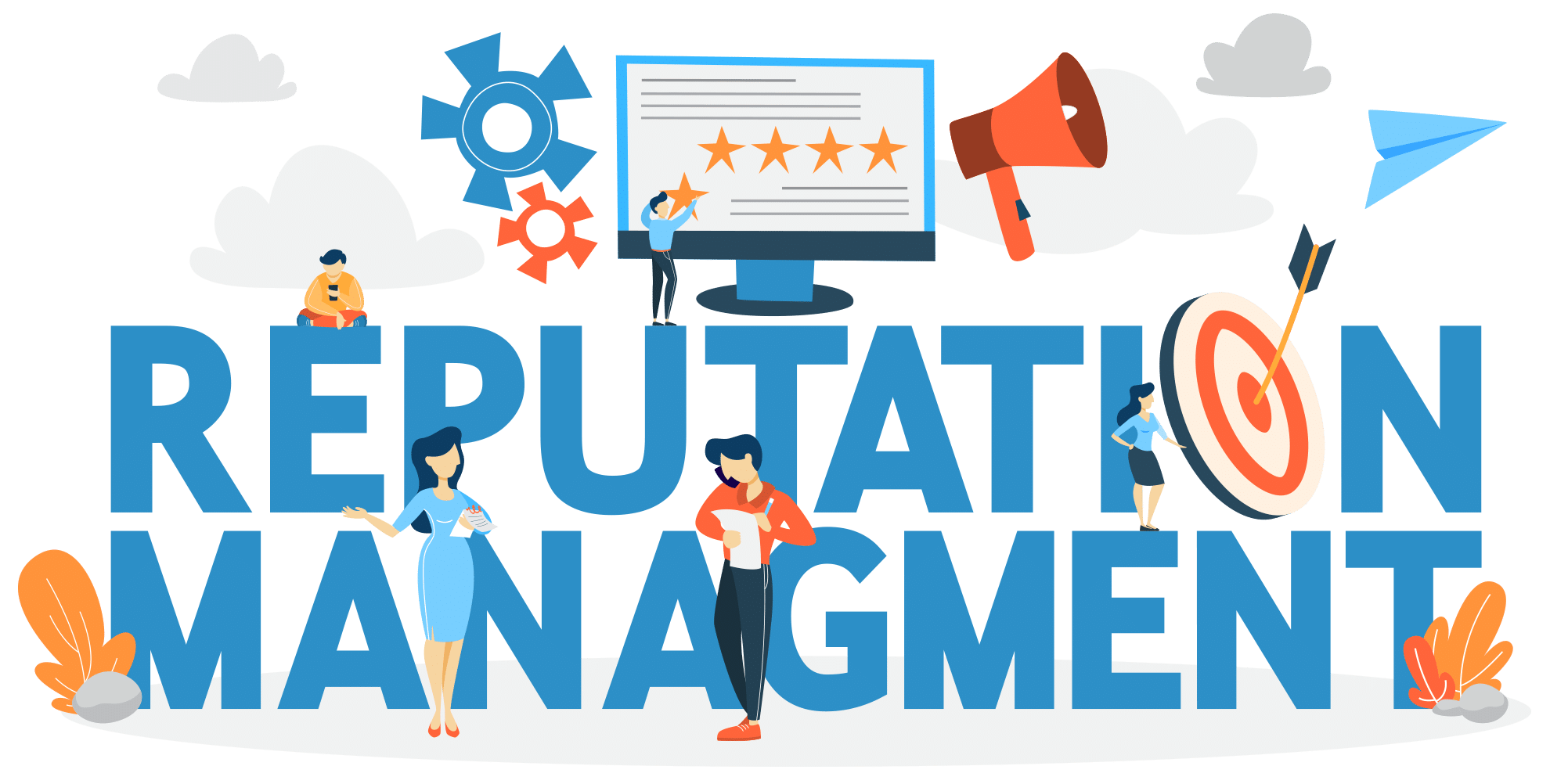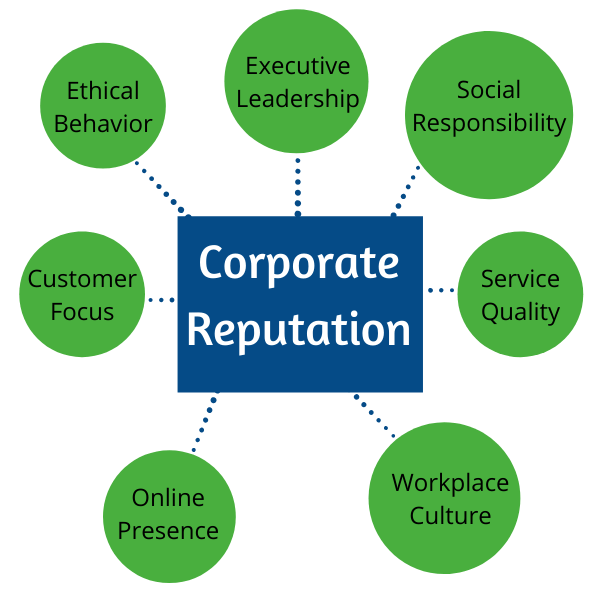The Power of Reputation Management: Navigating Online Perception
Wiki Article
From Crisis to Possibility: Leveraging Reputation Monitoring in Times of Difficulty
In today's interconnected and fast-paced globe, individuals and companies deal with the continuous danger of situations and misfortunes that can possibly harm their hard-earned online reputation. In this conversation, we will certainly check out the art of leveraging online reputation administration throughout times of situation, providing understandings and approaches that can transform a tough situation into a tipping rock for success.Recognizing Reputation Management
Comprehending online reputation monitoring is crucial for individuals and companies looking for to keep a positive public image and minimize potential damage in times of adversity. Credibility monitoring incorporates the techniques and methods made use of to shape, keep, and protect an individual's or company's online reputation (Reputation Management). It involves proactively monitoring what is being stated regarding the specific or business, both online and offline, and responding suitably to any type of adverse or destructive informationIn today's digital age, where information spreads out rapidly and can have a lasting influence, credibility management has actually become much more vital. Social media site platforms, on-line evaluation websites, and news electrical outlets can rapidly amplify any type of negative promotion or criticism, possibly triggering considerable harm to an individual's or company's credibility. By recognizing credibility monitoring, businesses and people can effectively navigate these obstacles and proactively address any type of concerns that may develop.
Key elements of online reputation management consist of monitoring on the internet states and reviews, involving with customers or stakeholders, resolving unfavorable responses or objection in a expert and timely manner, and actively taking care of online profiles and web content. Furthermore, people and companies should aim to build a strong credibility by delivering on guarantees, giving excellent customer service, and participating in ethical techniques.
Identifying Adversities and Situation Scenarios

To recognize these difficulties and situation circumstances, companies require to establish a robust surveillance and early caution system. This includes actively keeping an eye on traditional media, social networks platforms, on-line forums, and various other appropriate resources for any adverse conversations or possible dangers connected to the organization. Reputation Management. By remaining alert and aggressive, organizations can quickly identify and respond to arising issues, preventing them from spiraling out of control
Furthermore, organizations need to additionally carry out routine risk evaluations to determine prospective susceptabilities and weak points in their operations. This allows them to establish contingency plans and procedures to resolve situations successfully when they do occur. By being prepared and positive in determining hardships and situation scenarios, companies can much better safeguard their online reputation, keep stakeholder depend on, and eventually turn difficulty right into chance.
Structure a Dilemma Action Technique
Establishing an efficient dilemma reaction technique is vital for companies to effectively navigate through adversity and protect their reputation. In times of crisis, companies have to be prepared to react swiftly and properly to minimize the influence on their stakeholders and preserve public depend on. Building a crisis feedback approach includes a number of essential steps.To start with, organizations need to establish a dilemma monitoring group consisted of key people from different divisions. This group needs to be accountable for establishing and carrying out the situation feedback strategy. They must have a clear understanding of the company's values, objectives, and vital stakeholders.
Secondly, companies need to conduct a complete risk assessment to recognize potential situations that might take place and examine their potential effect. This involves evaluating internal and outside factors that might bring about a dilemma, such as operational interruptions, economic issues, or reputational threats.
Next, organizations need to develop an interaction plan that details exactly how they will certainly communicate with their stakeholders throughout a crisis. This plan must include clear and constant messaging, as well as channels and systems to get to various target markets.
Furthermore, companies must develop procedures for monitoring and evaluating the crisis feedback method. This includes frequently examining and updating the strategy to ensure its effectiveness and making necessary modifications based on lessons found out from previous situations.
More hints

Utilizing Social Media Site in Track Record Management
Social media has actually ended up being an indispensable tool for companies in handling their track record throughout times of hardship. With the surge of social networking systems such as Facebook, Twitter, and Instagram, organizations now have the chance to directly engage with their stakeholders and attend to any kind of problems or problems that may develop.Throughout times of crisis, social media allows organizations to swiftly distribute details, offer updates, and connect their side of the tale. By proactively taking part in social media sites conversations, companies can monitor public view, address false information, and show transparency and liability.
One of the essential benefits of using social media in track record monitoring is the ability to reach a large target market in real-time - Reputation Management. With social media sites systems, organizations can involve with stakeholders from all over the globe, regardless of geographical boundaries. This enables them to not just handle their online reputation locally yet also on an international scale
Another advantage of making use of social networks is the interactive nature of these systems. Organizations can actively pay attention to their target market, react to their concerns, and demonstrate a willingness to deal with concerns. This degree of involvement aids construct count on and reputation, which are important for online reputation administration.
However, it is essential for organizations to come close to social media sites with care. Missteps or improper responses can rapidly rise a dilemma and more damages the company's reputation. For that reason, it is necessary for organizations to have a distinct social media technique in position, with clear guidelines on how to resolve dilemma scenarios.
Turning Situation Into Chance: Case Researches
Several companies have efficiently transformed crises right into opportunities by efficiently managing their online reputation and carrying out critical activities. These instance studies highlight the significance of proactive track record management throughout times of adversity.One such case research is the Tylenol situation in 1982. When seven individuals passed away after taking in cyanide-laced Tylenol pills, Johnson & Johnson took instant activity to shield its reputation. The business swiftly recalled 31 million bottles of Tylenol, reintroduced the product with tamper-proof product packaging, and implemented a clear communication method. By prioritizing customer safety and security and honestly addressing the home crisis, Johnson & Johnson not just regained customer trust yet additionally set new sector standards for product safety and security.
An additional significant instance is the Domino's Pizza dilemma in 2009. Two employees shot themselves tampering with food in a Domino's kitchen area and uploaded the video online. In reaction, Domino's promptly said sorry and introduced an extensive online project to attend to the dilemma. The business's chief executive officer personally dealt with the issue in a YouTube video clip, showing transparency and dedication visit the site to client complete satisfaction. This proactive approach helped Domino's reclaim customer count on and even increase sales complying with the incident.
These study demonstrate the significance of quick activity, openness, and effective communication consequently crises right into opportunities. By properly handling their reputation and executing calculated actions, organizations can not only alleviate the adverse effects of a dilemma yet likewise arise stronger and extra resistant.
Final Thought
In times of misfortune, online reputation administration plays an important function in companies' survival and success. By recognizing the significance of reputation administration, recognizing crisis situations, and building effective reaction techniques, business can effectively navigate with difficult times. Leveraging social media sites as a tool in track record administration can additionally improve companies' ability to attend to crises and connect with stakeholders. With aggressive and tactical credibility monitoring, crises can be developed into chances for growth and renovation.By being prepared and positive in determining hardships and situation scenarios, organizations can much better safeguard their reputation, keep stakeholder count on, and ultimately transform misfortune into chance.
Establishing an efficient situation response method is vital for companies to effectively navigate with adversity and safeguard their credibility. Bad moves or improper feedbacks can rapidly intensify a crisis and additional damages the company's track record. Leveraging social media as a device in reputation administration can better enhance companies' capability to deal with crises and connect with stakeholders. With strategic and positive reputation administration, situations can be turned right into possibilities for growth and improvement.
Report this wiki page